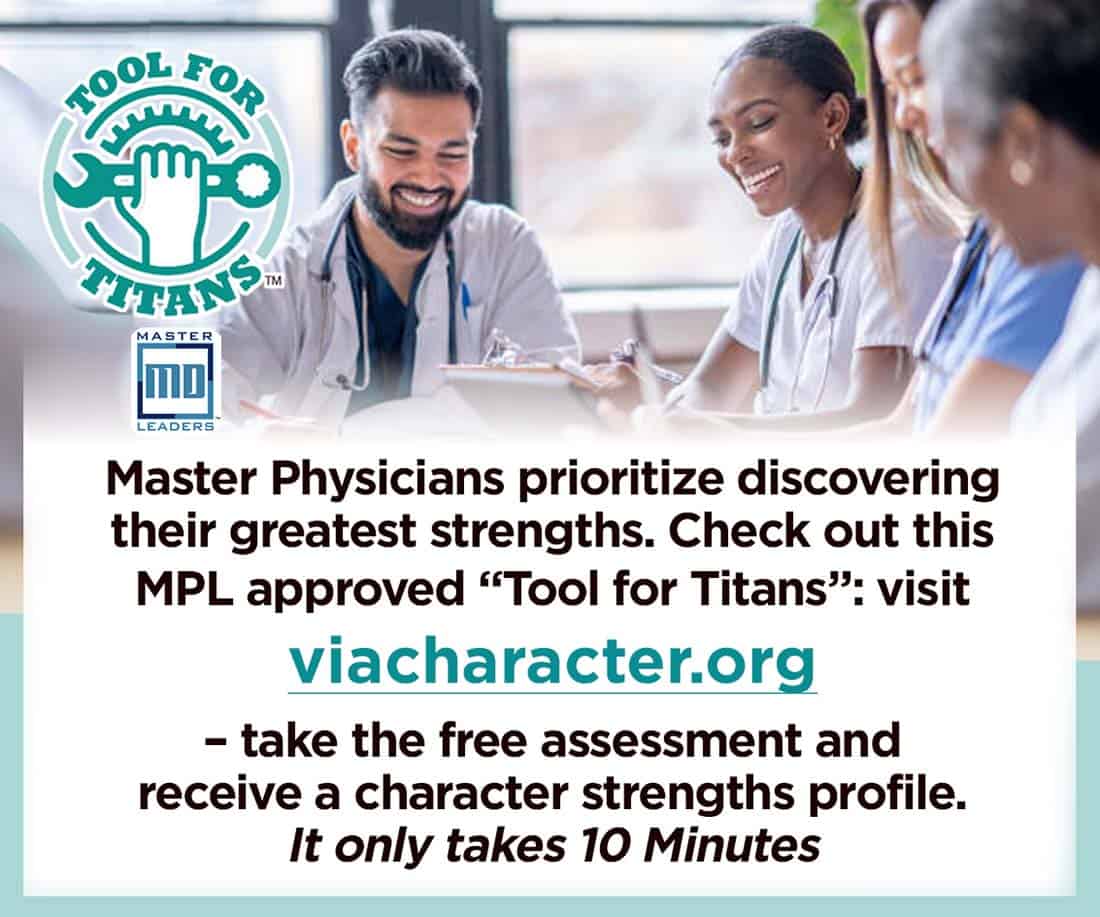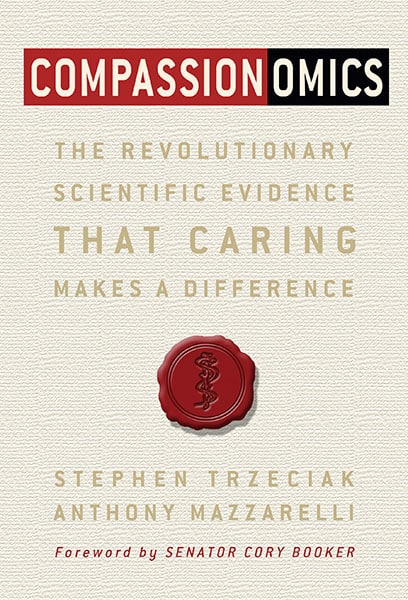The First 90 Days – Sign Up here to begin this free course
The First 90 Days

Is it a feeling? Is it a value? Or is it a tangible and measurable metric? Maybe it is something else entirely, or perhaps it is all of the above? Whatever the categorization, there is a universal belief that trust is good. And that trust matters. As Stephen M.R. Covey and Doug Conant explain in their Harvard Business Review Article about the importance of trust, “it’s not a nice-to-have; it’s a must-have.”
Trust is one of my personal and professional values. It is the value that I cherish the most. During conversations with my clients, I hear about the presence of trust, or sometimes the absence of it, in their lives. I hear a recurring theme that physicians want trust to be plentiful and prevalent. We want it in our teams and in our departments. And we certainly want it in our relationships with our patients and with our colleagues. We agree that trust is essential, and that the continuous building of trust is necessary for individuals to feel cared for and heard.
Trust means that others have the confidence that you are consistent in your words and actions, have the best interest of others, demonstrate respect and value for others’ talents, skills, and experience, and that you add value in relationships.
I believe the real magic of trusting relationships happens in the building of trust. It is through our actions that we tell others we are ethical when working and relating with them. Acts such as asking about their feelings and thoughts regarding a particular situation, or focusing on solving problems rather than blaming others, have a cumulative effect. Maintaining high standards of personal integrity tells others that you strive to behave in sync with your expressed beliefs and values. A willingness to share information, including information about yourself (staying within appropriate self-disclosure boundaries, of course), tells others that you are trustworthy. It takes a long time to build trust, and only an instant to destroy it. In my experience of building open, candid, and trusting relationships with colleagues and leaders at all levels, placing trust before performance is the biggest game-changer.
So, if trust is a necessity and not a luxury, how do we build it?
The building of trust is through the practice of specific, observable behaviors on a regular and consistent basis. In Stephen Covey’s book, The Speed of Trust, he identifies thirteen behaviors that “high-trust” leaders have in common. I dug into the list with my clients and identified five that were most important to the success of their relationships. I came up with an acronym to serve as a helpful guide. All of these behaviors can be learned and applied by any physician leader at any level within any organization. The net result is in generating trust in order to build high-performing teams who achieve better results. TRUST, in its ideal form, can be defined as:
T – Talk about your feelings regarding a particular situation; be open and genuine.
R – Right your wrongs; admit your mistakes, apologize for your part in them, and make amends.
U – Understand the other person’s position; listen carefully to what is on their mind and in their heart before jumping to conclusions.
S – Stick to your commitments and deliver on your promises; know your strengths and your limitations.
T – Treat people fairly, with respect and care; demonstrate loyalty to the absent and give credit appropriately.
Being a trusted leader differentiates great leaders from good leaders. When you are trusted as a physician leader, your team members are more comfortable with change and they are willing to take risks with you. Communication improves, and ideas flow more freely, increasing creativity and performance. You get their best efforts because everyone feels supported to do their best job. The invisible, but palpable net of psychological safety is securely in place for everyone to experiment, mess up, learn from it, and experiment again for the betterment of the team. Wash, rinse, and repeat. The building of trust follows a similar model – time, concern, and consistency – through the practice of specific behaviors.
I hope you connect with the five behaviors of TRUST. You may prefer to replace one from Covey’s list of thirteen. TRUST is to be a guide, not a directive. It is intended, however, to be a reminder that performance follows trust. Reverse the two and your relationships suffer.
Tip #12 – Place trust before performance.
Strategy #12 – Build trust through the practice of TRUST.
First 90 Days Introduction
First 90 Days Lesson 1
First 90 Days Lesson 2
First 90 Days Lesson 3
First 90 Days Lesson 4
First 90 Days Lesson 5
First 90 Days Lesson 6
First 90 Days Lesson 7
First 90 Days Lesson 8
First 90 Days Lesson 9
First 90 Days Lesson 10
First 90 Days Lesson 11
Sign up!
Teresa Dean Malcolm, MD, FACOG, MBA, CPE, CPXP, is zealous in her belief that an exceptional experience in clinical care, the human(e) experience, is achievable through meaningful and authentic relationships with others. She has served in executive positions, integrating people with process and purpose, and successfully aligning the ideas of the team with a compelling vision. Her coaching philosophy, The Malcolm Method, is rooted in trust and supportive accountability. Through thought-provoking conversations, she strives to deepen the awareness of her physician clients and further their actions, thereby helping them to thrive as they lead. Dr. Malcolm (known to her friends and family as Terri) is a loving wife to her husband, Nate. Together they have three charming and athletic boys, Nathaniel, and twins, Roman and Colton.



